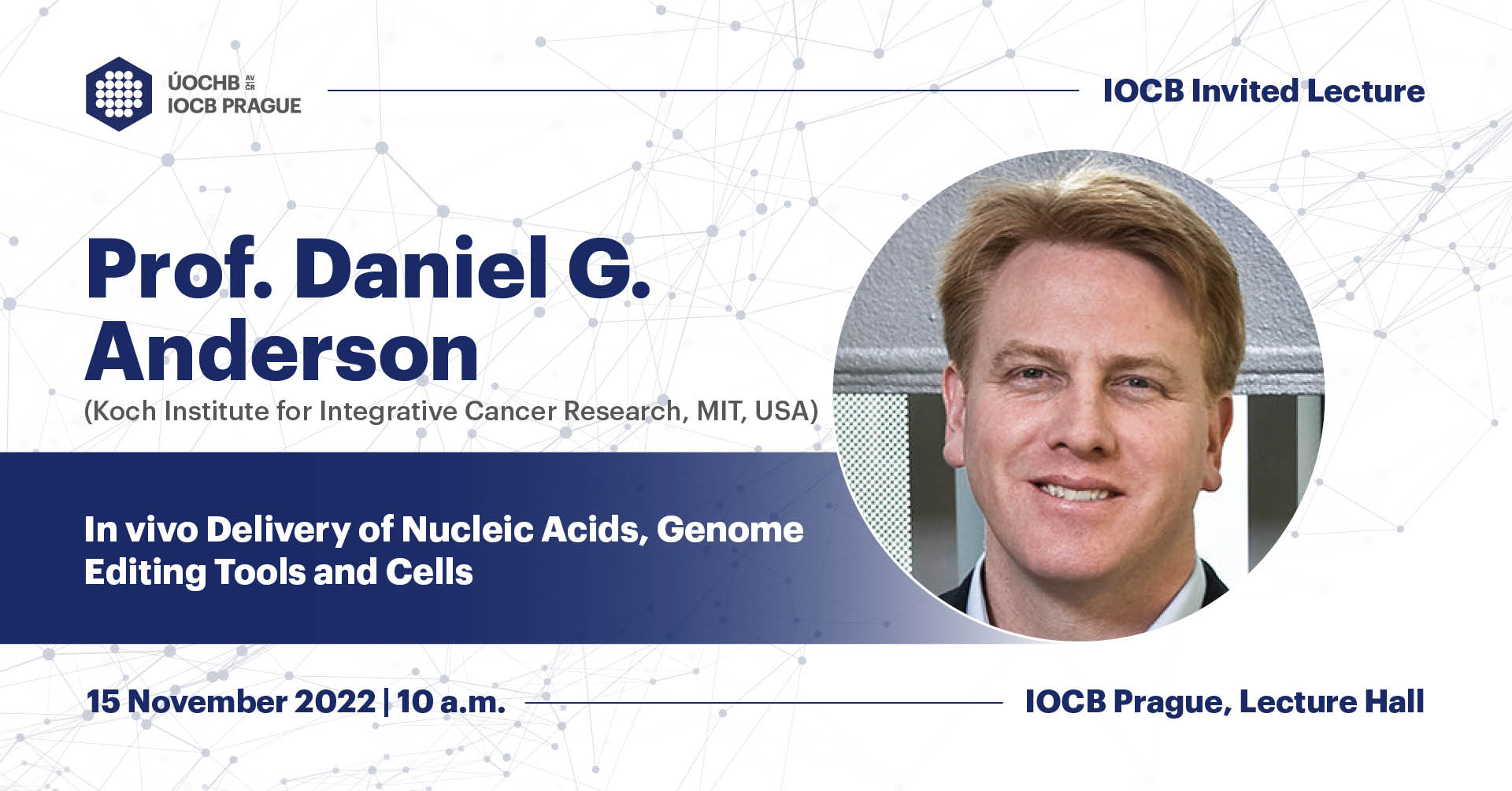
Prof. Daniel G. Anderson (Koch Institute for Integrative Cancer Research, Massachusetts Institute of Technology, Cambridge, MA, USA)
In vivo Delivery of Nucleic Acids, Genome Editing Tools and Cells
15 November 2022, 10 a.m.
IOCB Prague, Lecture Hall
Abstract
High throughput, combinatorial approaches have revolutionized small molecule drug discovery. Here we describe our work on the combinatorial development of biomaterials for medical devices ranging from nanoparticulate delivery systems to macroscopic devices. One focus of our work is on nanoparticulate, intracellular delivery systems for RNA therapy and gene editing. Libraries of degradable polymers and lipid-like materials have been synthesized, formulated and screened for their ability to delivery macromolecular payloads inside of cells. These nanoformulations facilitate in vivo delivery, enabling gene suppression with siRNA, gene expression with mRNA, or permanent genetic editing using the CRISPR/Cas9 system, providing therapeutic application for the treatment of disease in both rodent and primate models. A second focus of our work is on developing biomaterials that can avoid the fibrotic response common to implanted medical devices. Using combinatorial chemistry, we have developed new materials capable of avoiding fibrosis and scar tissue formation. These show particular promise as vehicles for the immune-isolation of transplanted cells, for the treatment of diabetes. When formulated into microcapsules these materials enable functional, long-term islet transplantation in immune competent, diabetic rodents, as well as normal non-human primates.




